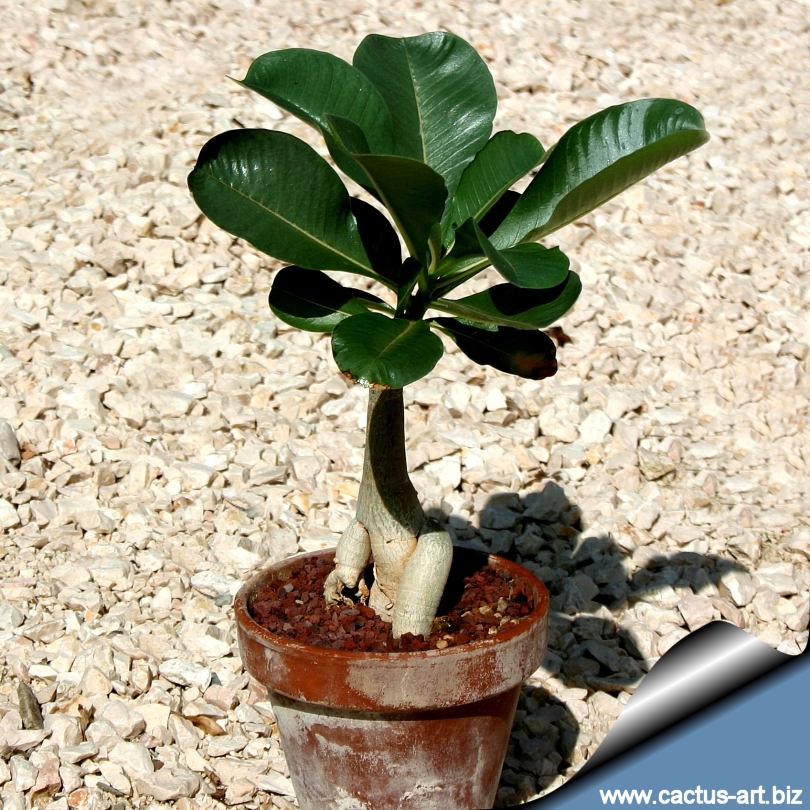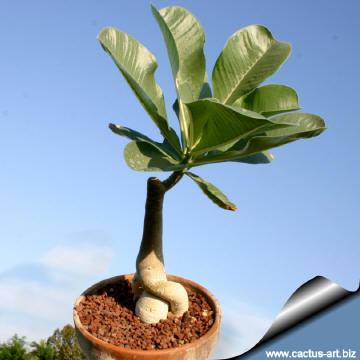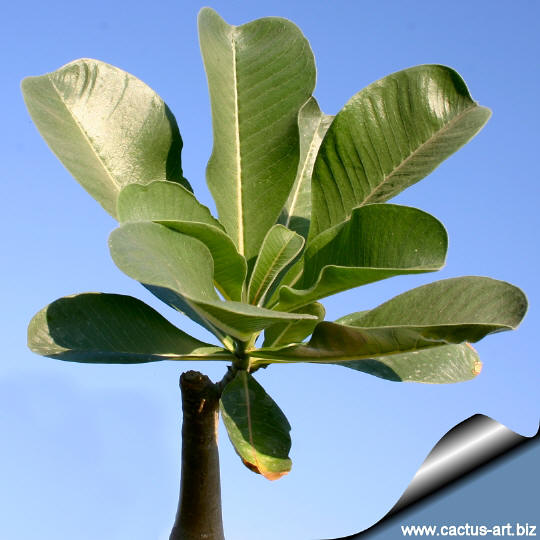|
|
|

Adenium boehmianum
|
|
 |
Description: Adenium bohemianus is a small peculiar species with
silvery branching caudex. The flowers are similar to those of A. swazicum but the leaves are broader pale grayish-green. It is a slow
grower adenium and need a long periods of dormancy.
It has relatively poor flowering characteristics compared to the more
floriferous A. obesum hybrid, but the flowers are anyway beautiful like
those of most of the adeniums and range from light-pink to dark magenta
pink colour.
A. bohemianum (and swazicum too) almost always drop every leaf during
the dormancy period. When leaf tips get brown, it usually means that the
plant is getting too dry between waterings but if they are doing it and
the plant is wet, cut back a little.
|
|
Photo of conspecific taxa, varieties, forms and
cultivars of plants belonging to theAdenium
obesum
complex
:
|
|
Advertising
|
|
|
|
|
Family: Apocynaceae
Scientific name: Adenium boehmianum Schinz
Published in: Protolog:
Verh. Bot. Vereins Prov. Brandenburg, 1888
Origin: Namibia
Synonyms: Adenium obesum ssp. boehmianum
Etymology:
Named in honour of
Boehm (Böhm) who made
the first chemical
investigation
in 1889 in Leipzig
and isolated a crystalline glycoside, (CsHs02), echugin (or echujiin),
from the milk sap of Adenium boehmianum. This substance is a
potent poison
used
by
Heikom Bushmen
of Namibia to poison their arrows for hunting game.
|
|
|
|

Cultivation: A. bohemianus is easy to grow but
is especially susceptible to spider mite infestation. It is nearly
evergreen if grown in a warm greenhouse or tropical conditions a and
watered, but can loose its leaves and forced into a long winter dormancy
in cooler climate. New growth begins early in spring.
It like pots with generous drain holes on sides and bottom, need a very
porous potting medium media (add pumice, vulcanite, and perlite) seeing
that the main trunk is planted with the majority of the roots below the
caudex line. Its rare that adeniums will use the upper third of their
soil and often this area serves like a mulch or support for the stem.
To make plants develop a large swollen base/trunk and to increase
flowering, they require a fertilizer rich in potassium and phosphorus
without a too high nitrogen content.
Bright filtered light is best but in areas where light is not as
burning, plants may be kept outdoors in full sun unprotected but
remember that caudex is very susceptible to sun scalding.
Water plants preferably in the early mornings until the soil is well
wetted and let excess water drains from the pot base. Watering can be
done as they become drier even daily or to every few days during active
growth season Never allow plants to dry out too often as this causes
them to go into early dormancy. Many plants simply never get enough
water to grow and flower adequately so keep them active and growing by
providing them with all the essential necessities.
Reproduction: seed, grafting or cuttings that develop the same
characteristics in a few years.

 |
|